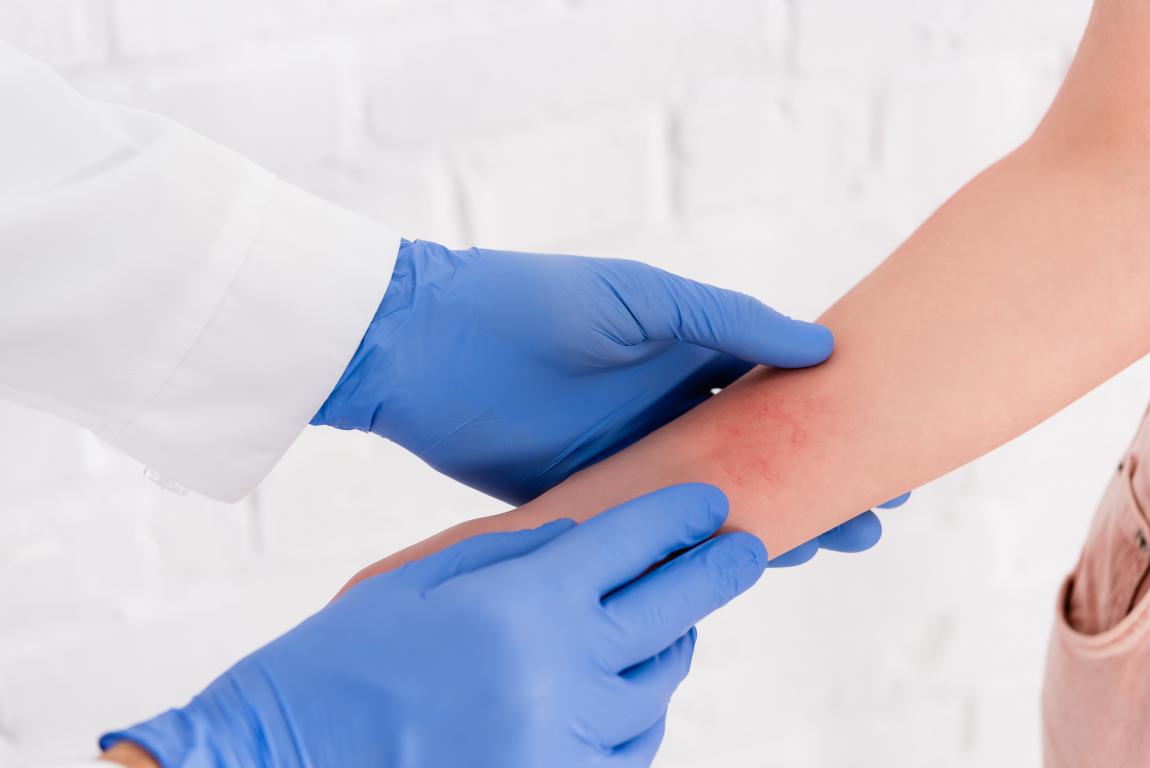Bio-degradable cards
Every card imaginable!
|
Bio-degradable cards Every card imaginable! Living with a Penicillin Allergy and Staying Safe
Understanding A Penicillin Allergy: Common Questions AnsweredPenicillin is one of the most widely used antibiotics, but allergies to it are also among the most frequently reported. Here, we'll address some of the common questions about penicillin allergy to help you understand the condition better.
A Penicillin allergy occurs when the immune system mistakenly identifies penicillin as a harmful substance. This immune response can cause symptoms ranging from mild to severe. Many people may think they're allergic to penicillin due to a reaction in the past, but studies show that a significant percentage of those believed to be allergic may not actually be so.
How does A penicillin allergy develop?To develop an allergy to penicillin, the immune system must have been exposed to it at least once before. This initial exposure might lead to the immune system forming antibodies. When the drug is taken again, these antibodies cause the immune system to attack, leading to an allergic reaction. Sometimes, prior exposure is not obvious—trace amounts of penicillin in the environment might be enough to trigger antibody formation.
What are the common symptoms of a penicillin allergy?Symptoms can vary greatly. Some common signs include skin rashes, hives, and itching, but more severe symptoms can include difficulty breathing, swelling, and anaphylaxis. It’s important to distinguish between a true allergic reaction and side effects, which may include nausea, diarrhoea, or headaches. While side effects are not dangerous, allergic reactions can be life-threatening and require immediate medical attention.
Is a penicillin allergy genetic?A Penicillin allergy is not directly inherited. Even if a family member is allergic to penicillin, it doesn’t mean you will be. Each person's immune system reacts independently, and a penicillin allergy in one family member doesn’t necessarily predict an allergy in others.
Diagnosis and Testing for A Penicillin AllergyDiagnosing a penicillin allergy correctly is crucial because many people mistakenly believe they are allergic, leading to the unnecessary avoidance of an effective antibiotic.
How is a penicillin allergy diagnosed?The best way to diagnose a penicillin allergy is through a medical evaluation that includes a detailed history, a physical exam, and allergy testing. A penicillin skin test is one of the most reliable ways to determine if someone is allergic. This test involves placing a small amount of penicillin on the skin and making a tiny scratch to observe for any reactions. If this test is negative, an intradermal test, which injects a small amount under the skin, might be done to confirm the result.
Can a penicillin allergy go away over time?Yes, penicillin allergies can sometimes fade over time. Many people who had a reaction years ago may no longer be allergic. Testing by an allergist can confirm whether the allergy persists, allowing for the safe use of penicillin if the allergy is no longer present.
What should I do if I need penicillin but am allergic?In cases where penicillin is the only effective treatment for an infection, a procedure called desensitisation can be used. This involves taking gradually increasing doses of penicillin under medical supervision until the therapeutic dose is safely reached. Desensitisation is temporary and needs to be repeated if penicillin is required again in the future.
Should I see a specialist if I think I have a penicillin allergy?If you believe you’re allergic to penicillin, consulting an allergist is highly recommended. They can conduct testing to determine if the allergy still exists, which could help you access effective antibiotic treatment without the risks associated with alternatives that may be less suitable.
Managing a Penicillin AllergyIf you have been diagnosed with a penicillin allergy, there are several steps you can take to manage the condition safely and effectively.
How can I prevent an allergic reaction to penicillin?The simplest way to prevent an allergic reaction is to avoid the drug altogether. It’s also important to ensure that your allergy is clearly documented in your medical records, and to inform all healthcare providers, including your dentist or specialists, about your allergy. Wearing a medical alert bracelet or carrying a medical card indicating your penicillin allergy can also be helpful in emergencies.
What are the treatment options for a penicillin allergy?Treatment typically involves stopping the use of penicillin immediately. Mild symptoms can be managed with antihistamines, while more severe symptoms, such as swelling or anaphylaxis, might require corticosteroids or an injection of adrenaline. Desensitisation may also be used in some cases where penicillin is needed for treatment.
Are there alternative antibiotics if I am allergic to penicillin?Yes, there are several alternative antibiotics available for those who cannot take penicillin. These include tetracyclines, fluoroquinolones, and macrolides, among others. It’s essential to work closely with your healthcare provider to ensure that the prescribed antibiotic is suitable for your condition and doesn’t pose a similar risk of allergic reaction.
What should I do if I suspect I’m experiencing a penicillin allergy?If you develop symptoms like difficulty breathing, swelling, or a severe rash after taking penicillin, seek emergency medical care immediately. It’s crucial to differentiate between a mild side effect and a serious allergic reaction, as the latter can progress rapidly and may be life-threatening if left untreated.
Additional Considerations About a Penicillin AllergyMany misconceptions surround penicillin allergy, which often leads to misunderstandings and unnecessary avoidance of this useful antibiotic.
Can I be allergic to other antibiotics if I'm allergic to penicillin?Penicillin belongs to a family of antibiotics called beta-lactams. While some people with a penicillin allergy may also be allergic to related drugs like cephalosporins, this is not always the case. Your healthcare provider may recommend testing to determine if you can safely take other antibiotics.
What’s the difference between a side effect and an allergy?Many side effects are often confused with an allergic reaction. Common side effects of penicillin include nausea, diarrhoea, and headaches, which usually resolve on their own. Allergic reactions, however, involve the immune system and can affect multiple organs, leading to severe outcomes such as anaphylaxis.
Why is it important to verify a penicillin allergy?Verifying a penicillin allergy is important because misdiagnosis can lead to the use of less effective antibiotics, which may have more side effects or contribute to antibiotic resistance. By undergoing testing, you can determine if you’re truly allergic, allowing for better antibiotic use and treatment outcomes.
What is drug-induced desensitisation therapy?Desensitisation therapy may be recommended if no other suitable antibiotic is available. This involves administering small, increasing doses of penicillin in a controlled medical setting until the patient can tolerate the full dose. However, desensitisation is not a permanent solution and is done only when absolutely necessary.In conclusion, being allergic to penicillin involves more than simply avoiding the medication; it requires careful diagnosis, management, and communication with healthcare providers. If you think you might be allergic to penicillin, consider seeing an allergist for a proper evaluation. Understanding the condition and the available options can significantly improve treatment outcomes and overall safety.
© 2024 The Card Project Uk Ltd
VAT: 453 2087 06
|